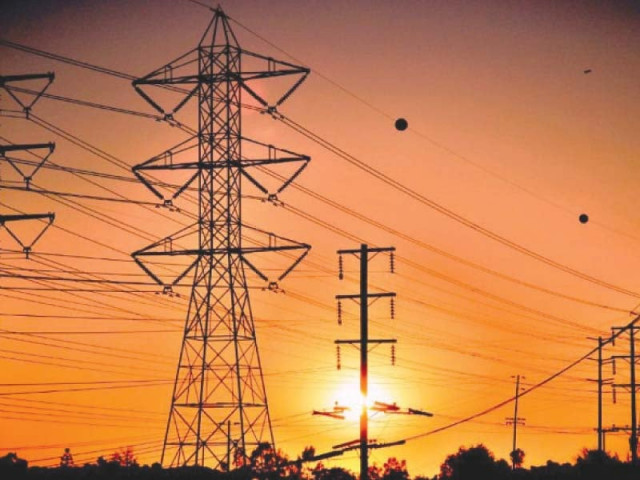CASA-1,000 project: Swiss ABB likely to win contract for converter stations
Likely to clinch a multimillion-dollar contract for establishing converter stations in Pakistan and Tajikistan

Originally, three converter stations were planned as part of the Casa project. However, the number of stations has been brought down to two, which will substantially reduce the cost of the project. PHOTO: FILE
Three well-reputed European companies which included ABB, Siemens of Germany and Alstom of France had expressed interest and submitted bids for setting up the converter stations.
According to sources, ABB may be declared the successful bidder in the financial bids which are being evaluated. One station each will be set up in Tajikistan and Pakistan. Earlier, bids had been invited one year ago for setting up the converter stations, which convert high-voltage direct current into alternating current or the reverse, but they were revoked due to high offer prices.
PESCO told to improve power system
Originally, three converter stations were planned as part of the Casa project. However, the number has been brought down to two, which will substantially reduce the cost of the project.
The Central Asia-South Asia Regional Electricity Market is envisaged to be developed in a phased manner through institutional arrangements and infrastructure building that will utilise Central Asia’s power resources to tackle energy shortages in South Asia.
All countries participating in the Casa project, which will transport electricity from Tajikistan and Kyrgyzstan to Pakistan and Afghanistan, have separate contracts for laying transmission lines in their territories.
Kyrgyzstan and Tajikistan will export 1,000-1,300 megawatts of electricity to Pakistan and Afghanistan. Pakistan will consume a major share of exports whereas Afghanistan will receive around 300MW.
Officials said third-party access rules had been framed for the Casa project, which would allow a third country, originally not part of the project, to export electricity.
Pakistan is also eager to purchase thermal electricity as Tajikistan will be providing hydroelectric power for only five months in a year. No hydroelectric power will be supplied by the Central Asian states in the winter season.
The regulator - National Electric Power Regulatory Authority (Nepra) - has already approved a tariff of 9.41 cents per unit for electricity import from the Central Asian states.
This includes energy charges of 5.15 cents per kilowatt-hour (kWh), transmission charges of 2.91 cents per kWh, transit fee for Afghanistan of 1.25 cents per kWh and wheeling charges for Tajikistan of 0.10 cent per kWh. Already, Pakistan is importing electricity from Iran to meet the requirement of Gwadar at a cost of 6.25 cents per unit, which is higher than the 5.15 cents that will be paid to Tajikistan.
The difference is because of the fuel as Iran consumes oil and gas for power generation while Tajikistan will supply hydroelectric power.
Massive power breakdown hits Karachi
Tajikistan’s energy sector had been showing sustainable growth for the last 15 years. Apart from big plants, there are 20 medium and 40 small hydroelectric power stations in remote mountainous areas with capacity ranging from 5 kilowatts to 1,500 kilowatts. The Casa power project will not only ease electricity shortages in Pakistan but will also replace fuel-based electricity in Pakistan and Afghanistan. It will establish Kabul as a viable transit nation and offer electricity to other countries in off-peak season.
Published in The Express Tribune, September 21st, 2018.
Like Business on Facebook, follow @TribuneBiz on Twitter to stay informed and join in the conversation.



















COMMENTS
Comments are moderated and generally will be posted if they are on-topic and not abusive.
For more information, please see our Comments FAQ